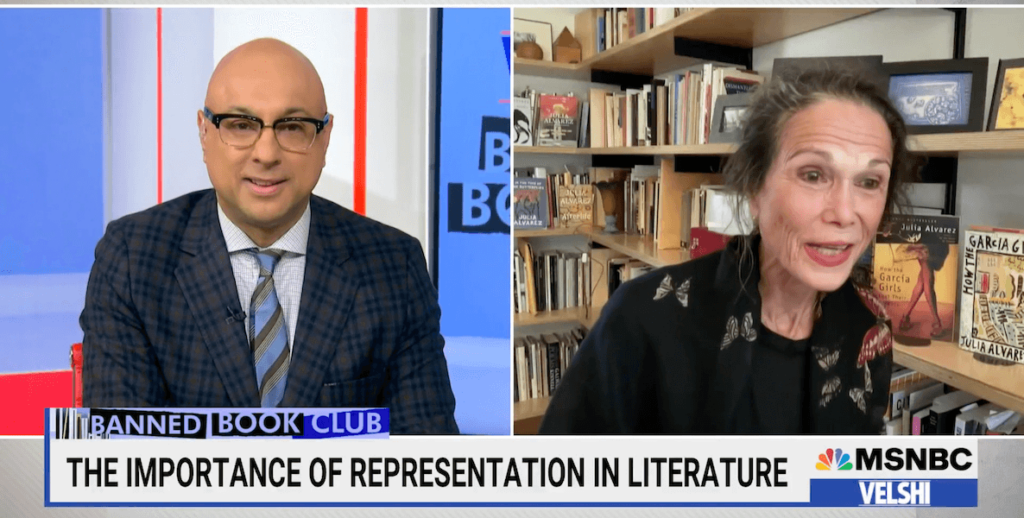Since 1991, author Julia Alvarez’s How the García Girls Lost Their Accents has been offering a mirror to young people, especially girls, whose families have moved from Latino countries to the U.S. And all this time, How the García Girls Lost Their Accents has been on banned book lists. Ali Velshi speaks with Alvarez about the book’s themes and effects.
The novel follows four sisters’ journey with their parents from their protective home in the Dominican Republic to New York City. Along the way, it explores the girls’ challenges at home and outside. It observes their changing identities as individuals, a family, and as Hispanic U.S. residents in the 1960s. Understanding identity, Alvarez says, is key.
“Identity is not a done deal. Here I am at 73, and I’m reinventing myself as an elder. It’s an ongoing process. You know what I do when I need help negotiating it? I got to books. I read novels with older protagonists. I see films,” she says.
“I want to understand the landscape so I can find my way through it. And this is why books are so important to us — and especially to our young people who are doing that in a way consciously for the first time as adolescents. Finding themselves. Trying to figure out who they are.”
Alvarez believes books like How the García Girls Lost Their Accents get banned because, “people are afraid of anything that’s going to be disturbing or other than what they want in their bubble.”
Listen to Ali’s interview with Julia Alvarez:
Watch Velshi and Alvarez:
Velshi on banned books on MSNBC:

